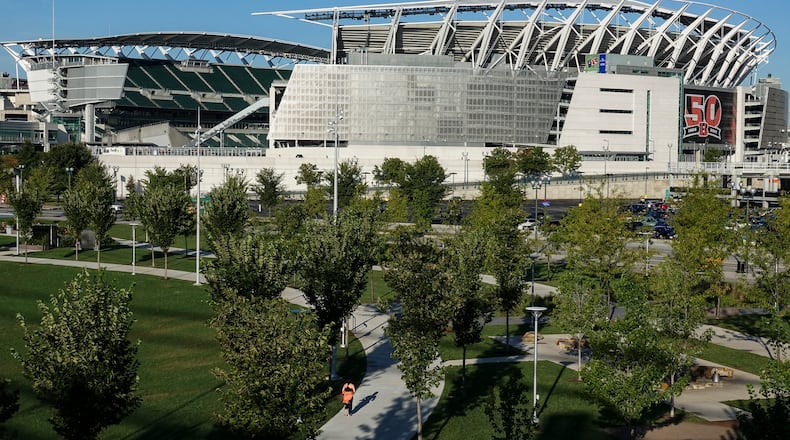“Even though our 2026 Cincy Local Organizing Committee, our community and our partners put together a flawless bid package, Cincinnati fell short in its efforts to become a host city for FIFA World Cup 2026,” Jeff Berding, Co-CEO of FC Cincinnati and 2026 Cincy Local Organizing Executive Committee, said in a statement provided to local media. “… Even though this bid may not have been successful, I feel the process has set us up for future successful bids that will enhance our city and raise our international profile. We showed that the new Cincinnati is an ambitious city that compete for world class events, so this isn’t the end of this process – it’s just the beginning of more to come. So stay tuned, and don’t sleep on Cincinnati.”
A total of 11 cities in the U.S. were selected – Atlanta, Boston, Dallas, Houston, Kansas City, Los Angeles, Miami, New York/New Jersey, Philadelphia, San Francisco Bay Area and Seattle. Other host cities include Toronto and Vancouver in Canada and Guadalajara, Mexico City and Monterrey in Mexico.
Others left out from the U.S. were Denver, Nashville, Orlando and Washington, D.C./Baltimore, the latter being a merged bid of two original finalists.
National pundits had considered Cincinnati on the bubble to get games at Paul Brown Stadium. The 65,000-seat stadium would have needed some renovations, which the county approved recently to meet FIFA standards, and lack of public transportation options in the region also was a concern.
Although Cincinnati won’t be hosting a World Cup game, thank you Hamilton County Commissioners for trying to show the world what we already know: Cincinnati is a world-class city,” the Bengals posted on Twitter. “We are lucky to call it home.”
FIFA had visited Cincinnati in the fall, and the city’s presentation appeared to be a strong one, drawing positive comments from visiting officials. However, the 48-team, 80-game tournament is largely going to major markets with more versatile or updated stadiums.
“It was an honor to be in the running for the FIFA World Cup 2026, and the spotlight on Cincinnati as a potential host city provided a platform to show all that Cincinnati has to offer to an international audience,” Governor Mike DeWine said in a statement. “While this is not the outcome we hoped for, Cincinnati remains a strong option for any future world-class sporting event. We look forward to watching with the rest of the world and cheering on the USMNT in the 2022 World Cup!”
The process began in 2017 with a list of 35 U.S. cities that expressed declarations of interest in hosting matches. It was narrowed down to 17 cities (along with three each from Canada and Mexico) in the winning United 2026 bid that beat out Morocco for the 2026 World Cup hosting rights in a 134-65 vote of FIFA members at the 2018 FIFA Congress in Moscow.
United 2026 proposed to use only 10 of 17 U.S. cities in the bid and flow the tournament “west to east” as it progressed, ending with the final at MetLife Stadium in East Rutherford, New Jersey, after playing the semifinals at Mercedes-Benz Stadium in Atlanta and AT&T Stadium in Arlington, Texas.
It was up to FIFA to make the final decisions on all aspects of the tournament, including which cities would host. The evaluation process was delayed after the original plan was for FIFA inspectors to visit the U.S. bid cities twice in 2019. That got pushed back into 2020 and then Covid hit, further delaying those tours until 2021.
There were changes to candidate cities, too. Baltimore and Washington merged their bids earlier this year after it became apparent FedEx Field, the proposed Washington stadium, would kill the D.C. candidacy. In Canada, Montreal dropped out after the Quebec government withdrew its support due to associated costs with hosting (estimated at $100 million). Vancouver, which had originally declined to bid for the same reasons, ended up replacing Montreal. Edmonton’s Commonwealth Stadium also was expected to host games but didn’t meet FIFA standards, leaving Canada with just two candidates.
About the Author
